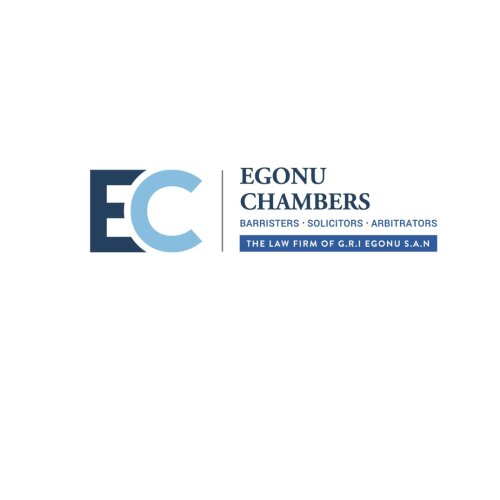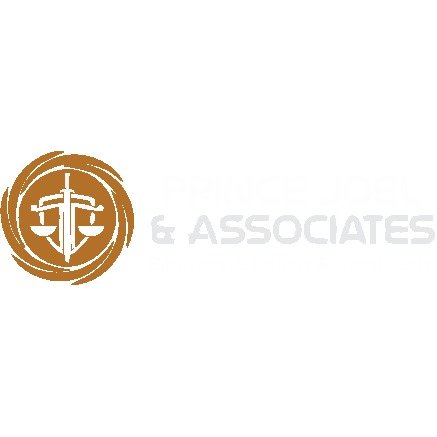Best Structured Finance Lawyers in Onitsha
Share your needs with us, get contacted by law firms.
Free. Takes 2 min.
List of the best lawyers in Onitsha, Nigeria
About Structured Finance Law in Onitsha, Nigeria
Structured finance refers to complex financial instruments that are typically used by companies, government bodies, or other legal entities to raise capital, manage risk, or optimize their financial positions. In Onitsha, one of Nigeria’s largest commercial cities, structured finance often plays a key role in supporting commercial transactions, infrastructure projects, real estate developments, and trade financing. Structured finance law relates to the legal principles, regulations, and contractual frameworks that govern these sophisticated transactions, ensuring that every party understands its rights and obligations while mitigating the risks associated with such complex arrangements.
Why You May Need a Lawyer
Structured finance transactions in Onitsha are subject to a variety of legal requirements, including documentation, regulatory compliance, and risk management. Common situations where a lawyer’s expertise is essential include:
- Negotiating or reviewing asset-backed securities, loan syndications, or securitization agreements
- Ensuring compliance with Central Bank of Nigeria regulations and local financial laws
- Structuring public-private partnerships for infrastructure or development financing
- Managing legal risks in complex lending arrangements and collateralization
- Resolving disputes related to breach of contract or regulatory non-compliance
- Advising foreign investors or local companies on structuring cross-border financing deals
- Assisting with due diligence and documentation to minimize future legal challenges
Legal guidance can help safeguard your interests, ensure adherence to all applicable laws, and make transactions more efficient and transparent.
Local Laws Overview
Several Nigerian laws and regulations directly impact structured finance activities in Onitsha. Key legal considerations include:
- Companies and Allied Matters Act (CAMA): Governs the formation and operation of corporate entities engaging in structured finance.
- Central Bank of Nigeria (CBN) Guidelines: Regulate how banks and financial institutions handle lending, securitization, and related commercial activities.
- Investments and Securities Act: Provides the legal framework for issuing asset-backed securities and conducting other capital market transactions.
- Land Use Act: Influences collateralization of real property in structured finance transactions, which is common in Onitsha’s property and infrastructure projects.
- Securities and Exchange Commission (SEC) Rules: Apply to securitization, bond issuances, and disclosure requirements for investors.
- Anti-Money Laundering and Anti-Terrorism Financing Regulations: Mandate due diligence and reporting for structured deals to prevent financial crimes.
Local lawyers also pay close attention to Onitsha’s commercial court decisions and regional regulatory updates, which can influence the enforceability and structuring of finance agreements.
Frequently Asked Questions
What is structured finance, and how is it used in Onitsha?
Structured finance refers to specialized financial arrangements designed to address complex financing needs. In Onitsha, it is often used for large-scale projects, business expansion, and innovative trade finance solutions.
Who typically needs structured finance legal services?
Businesses, developers, financial institutions, government agencies, and high-net-worth individuals who require customized financing solutions usually seek legal assistance with structured finance.
What risks are involved in structured finance transactions?
Risks include regulatory non-compliance, inadequate collateral, default by borrowers, fluctuating interest rates, and changes in government policy.
Can small businesses in Onitsha access structured finance?
Yes, though structured finance is commonly associated with larger transactions, small and medium enterprises may also benefit, particularly through invoice discounting or equipment leasing backed by legal advice.
How important is due diligence in structured finance?
Due diligence is critical in evaluating creditworthiness, verifying collateral, and ensuring that all agreements comply with applicable laws, thereby reducing potential legal disputes.
What role does the Central Bank of Nigeria play?
The Central Bank regulates financial institutions, sets standards for lending, and provides necessary approvals for certain types of structured finance transactions.
How are disputes in structured finance resolved?
Disputes are usually resolved through commercial arbitration, mediation, or litigation in courts with jurisdiction over financial matters in Onitsha or the relevant state.
Can foreign investors participate in structured finance deals locally?
Yes, foreign participation is possible but subject to both Nigerian national laws and local content regulations. Legal advice ensures compliance with all requirements.
What documentation is needed for a structured finance deal?
Core documents include loan agreements, security documents, trust deeds, disclosure statements, and any required permits or regulatory approvals.
What happens if the terms of a deal are not followed?
Breaching the terms may lead to penalties, forfeiture of collateral, or legal action. A lawyer can help enforce contractual rights or defend against wrongful claims.
Additional Resources
- Nigerian Bar Association, Onitsha Branch: For referrals to finance law specialists
- Central Bank of Nigeria (CBN) Southeast Zonal Office: For regulatory guidance and updates
- Securities and Exchange Commission (SEC) Nigeria: For information on securities, securitization, and disclosure rules
- Onitsha Chamber of Commerce, Industry, Mines, and Agriculture: For business networking and introductory legal seminars
- Commercial Courts in Anambra State: For filings, case information, and resolving disputes
Next Steps
If you are considering or involved in any structured finance transaction in Onitsha, take the following steps:
- Define your goals and the nature of the transaction you wish to undertake.
- Gather all preliminary information and documents, such as project details, business plans, and current financing arrangements.
- Consult with a legal practitioner experienced in structured finance to evaluate your options and obligations.
- Work collaboratively with your lawyer to ensure all legal and regulatory requirements are met, including due diligence, documentation, and regulatory approvals.
- Stay informed about regulatory changes or updates relevant to your transaction.
- If a dispute or unexpected challenge arises, act quickly to seek legal advice or mediation to resolve the issue efficiently.
Seeking early professional legal guidance can safeguard your interests and set your structured finance transaction up for success in Onitsha, Nigeria.
Lawzana helps you find the best lawyers and law firms in Onitsha through a curated and pre-screened list of qualified legal professionals. Our platform offers rankings and detailed profiles of attorneys and law firms, allowing you to compare based on practice areas, including Structured Finance, experience, and client feedback.
Each profile includes a description of the firm's areas of practice, client reviews, team members and partners, year of establishment, spoken languages, office locations, contact information, social media presence, and any published articles or resources. Most firms on our platform speak English and are experienced in both local and international legal matters.
Get a quote from top-rated law firms in Onitsha, Nigeria — quickly, securely, and without unnecessary hassle.
Disclaimer:
The information provided on this page is for general informational purposes only and does not constitute legal advice. While we strive to ensure the accuracy and relevance of the content, legal information may change over time, and interpretations of the law can vary. You should always consult with a qualified legal professional for advice specific to your situation.
We disclaim all liability for actions taken or not taken based on the content of this page. If you believe any information is incorrect or outdated, please contact us, and we will review and update it where appropriate.











